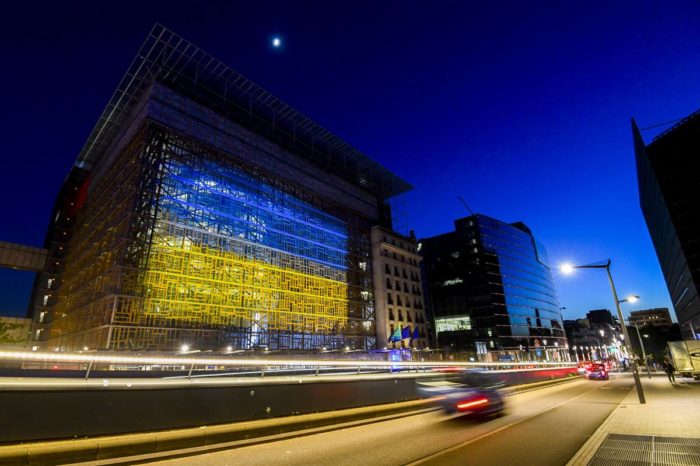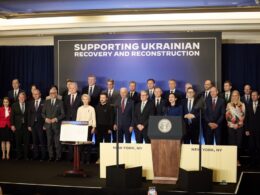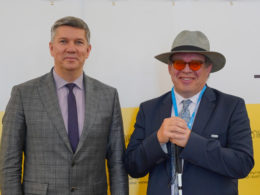The European Union has traced frozen €260 billion in Russian assets, with €210 billion locked in Belgium and Luxembourg, said Deputy Minister of Justice Iryna Mudra.
In 2022, the World Bank estimated the cost of Ukraine's recovery and rebuilding from Russia's invasion at $411 billion, with the cost of cleaning up the war rubble alone at $5 billion. As the amount of damage continues to grow, Ukraine called on the Western nations to support the confiscation of Russian assets and redirection them to rebuild the country.
The initial step to transfer the frozen funds to Ukraine involves consolidating these assets into a single account within Euroclear, a process that demands consensus from all 27 member countries.
However, with the European Commission pledging to expedite the procedure, Deputy Minister Mudra assured that this decision would be made swiftly.
The next crucial step after the consolidation of assets is determining a direction for the proceeds generated from these Russian assets, a consensus that is currently elusive.
Despite the challenges, Deputy Minister Mudra emphasized ongoing efforts, expressing confidence that the matter would be resolved.
The Ukrainian delegation, led by Minister Denys Maliuska, held a series of meetings with EU Justice Commissioner Didier Reynders and top officials from the European Commission and the Belgian government.
As from January to June 2024, Belgium will hold the Presidency of the Council of the European Union, Brussels is the country where crucial discussions regarding the frozen Russian assets are unfolding.
"Sovereign assets primarily exist in the form of bonds, obligations, and other financial instruments. As these financial tools reach the end of their term, they get converted into cash. Almost all assets are held in the accounts of significant depository institutions like Euroclear or in the accounts of central and reserve banks.
"The focus of today's meetings was specifically on the profits generated from these financial instruments. The EU will continue its efforts to locate and inventory all relevant assets, a fact confirmed by EU ambassadors yesterday," noted the deputy head of the Ministry of Justice.
Mudra said that Belgium, standing firmly with Ukraine, ensures complete support for channeling the proceeds from the seized assets toward Ukraine's recovery. While
While acknowledging the discussions on political, legal, and economic risks within the EU, Deputy Minister Mudra noted a prevailing inclination toward affirmative action.
"The EU is reluctant about this talk so far because it prefers the step-by-step approach. However, G7 is actively working to resolve the question, and there are certain shifts regarding the adoption of legislation in the US on the assets," the official concluded.
Earlier, UK Foreign Secretary David Cameron said there was a strong argument for seizing frozen Russian assets worth nearly $350 billion and using them to rebuild Ukraine during his visit to the US.
UK foreign secretary urges use of $350 bn frozen Russian assets for Ukraine’s reconstruction
The official explained that the funds could be used as a downpayment on reparations as “Russia will one day have to pay for the illegal invasion that they’ve undertaken.”
The UK foreign secretary also urged US policymakers to approve a new package of military aid for Ukraine after Congress blocked a $110 billion package of wartime funding for Ukraine and Israel.
Read also:
- UK Foreign Secretary to US: Blocking Ukraine aid would be “Christmas present” to Putin
- Blinken: Denying aid to Ukraine risks unleashing Pandora’s box of aggression
- Biden: “Failure to support Ukraine is just absolutely crazy”




